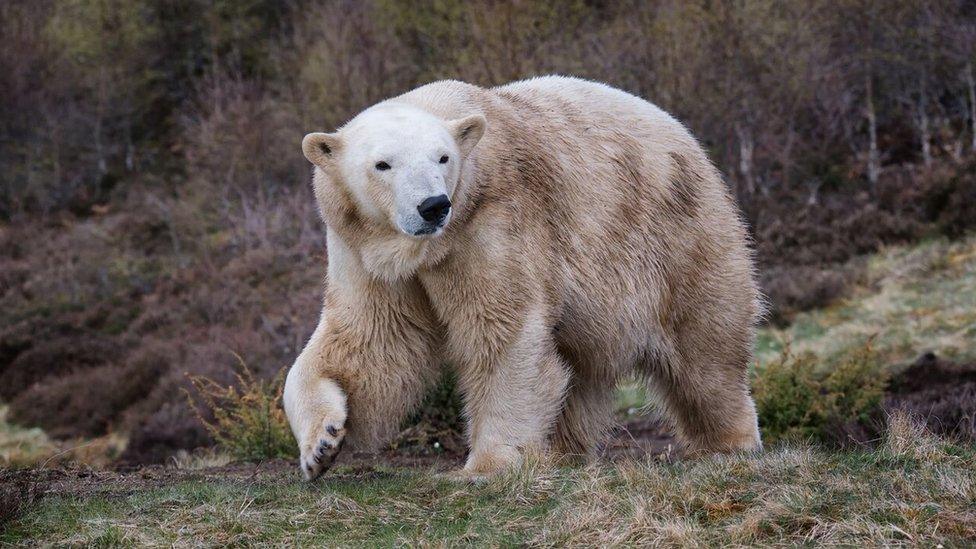Patience plea over Scottish park's new polar bear cub
- Published
Meet the first polar bear cub to be born in the UK in 25 years
The UK's first polar bear cub to be born in 25 years is to go on public display from Wednesday.
Born at the Highland Wildlife Park, near Kincraig, in December, the cub and its mother's enclosure has been closed off to the public.
The park's Douglas Richardson said visitors would need to be patient in the next few "initial days".
He said the cub might only be glimpsed because it is still young and sleeps "quite a lot".
The sex of the cub should be known by May by which time staff will have given the cub a health check and microchipped it.
When it is known if it is male, or female, the park plans to release a list of potential names.
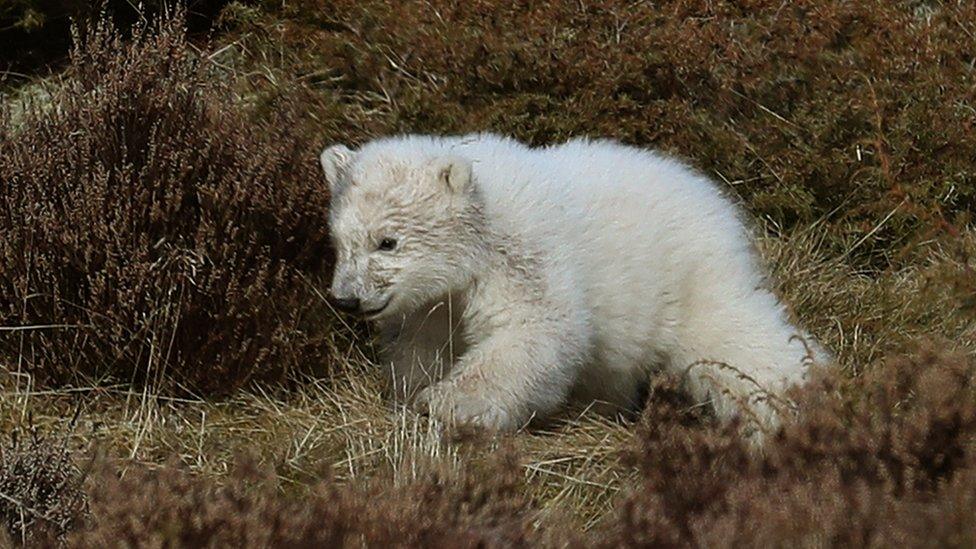
The cub in its wider enclosure on Tuesday morning
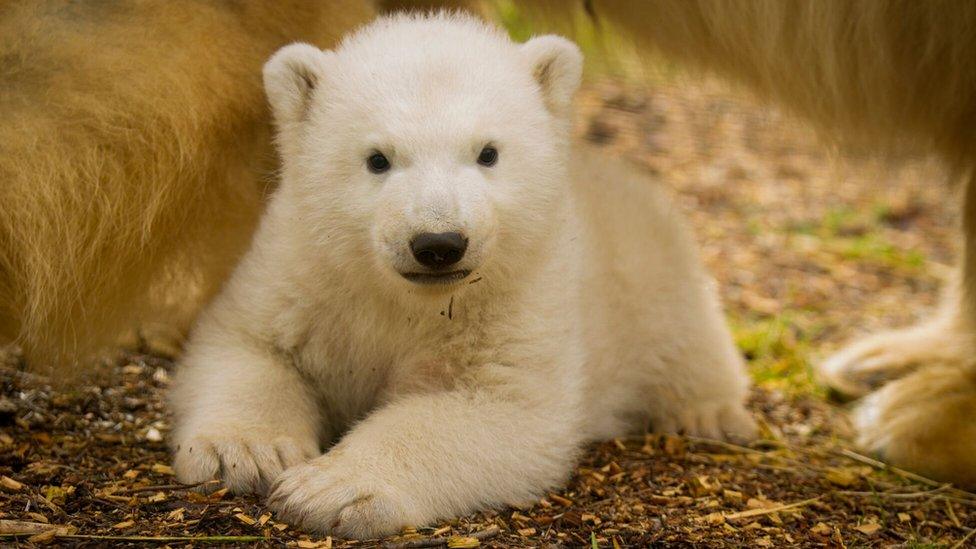
The polar bear cub was born in December
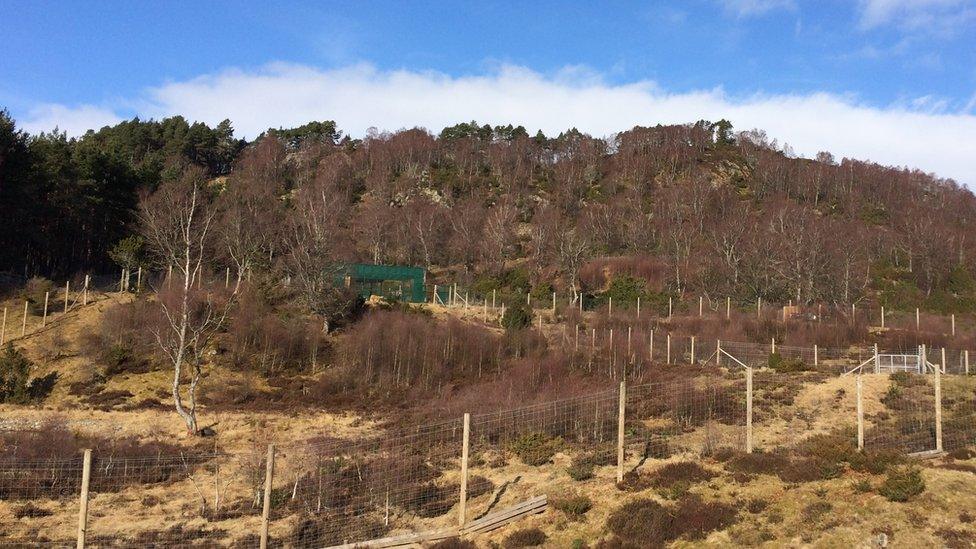
The bears' enclosure
The cub and its mother, Victoria, are in an enclosure in a different part of the park from the cub's father Arktos and another male bear called Walker.
Mr Richardson said the viewing area at Victoria's enclosure was designed to cope with large groups of visitors, but the set up would be reviewed if visits to the area became "crazy".
He added the cub would be at the park with its mother for an "absolute minimum" of two years, "mirroring" mother and cubs behaviour in the wild.
Mr Richardson said: "So there will be plenty of opportunities to come and see it. In 2019 it is still going to look pretty cute.
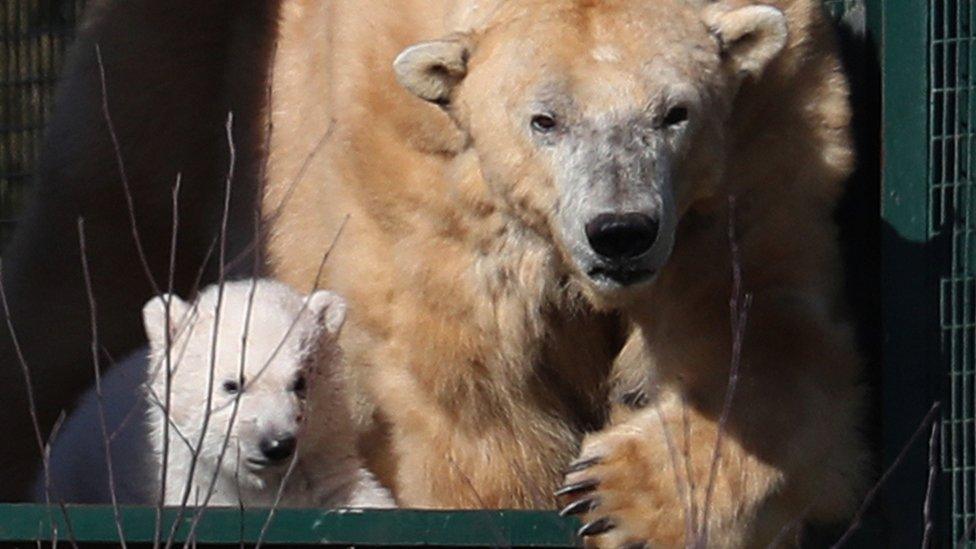
The cub will remain with its mother for at least two years
"The one thing we would say is in the initial days of allowing visitors up here is that they just need to be a wee patient.
"It is still a very young cub. They sleep quite a lot and there maybe times the mum and baby are crashed out in the off-exhibit area of the enclosure.
"But if patient they will be rewarded with a good view of the cub and the mum."

First tentative steps into the limelight
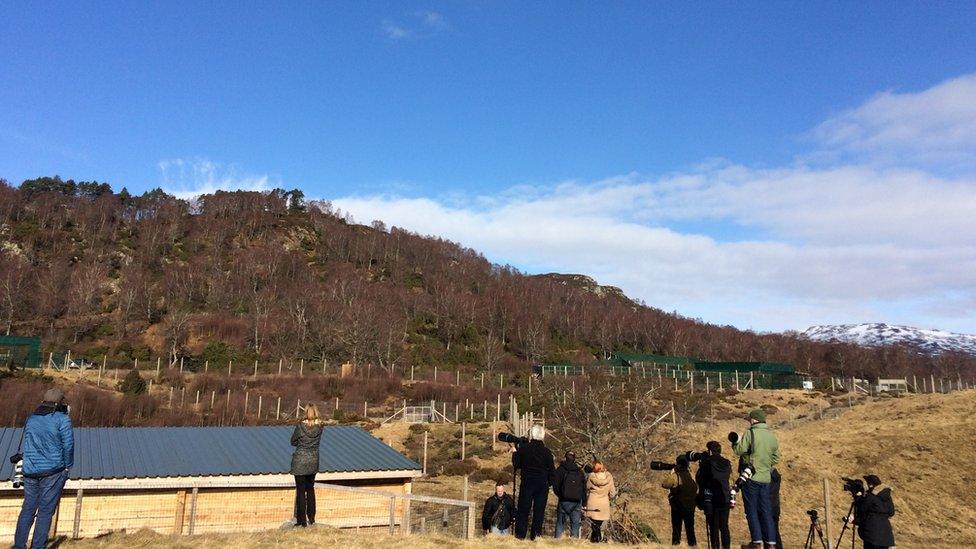
Photographers and journalists looking out over the bears' enclosure
Before going on public display for the first time on Wednesday, the media were given a chance to catch a glimpse of the cub at an event on Tuesday morning.
Under a crisp, blue sky in temperatures of -3C and with the snow-covered Cairngorm mountains as a backdrop, photographers, camera crews and journalists gathered at the cub and its mum's enclosure.
Photographers chatted hopefully about where the cub might emerge from the section of the enclosure containing specially-constructed den, to give them the best chance of snapping the little bundle of fur.
Teasingly, before a door was slid open to allow the cub and its mother Victoria to leave the den area, glimpses of it could be seen.
For a time it rolled around on its back while swiping a paw at its mother.
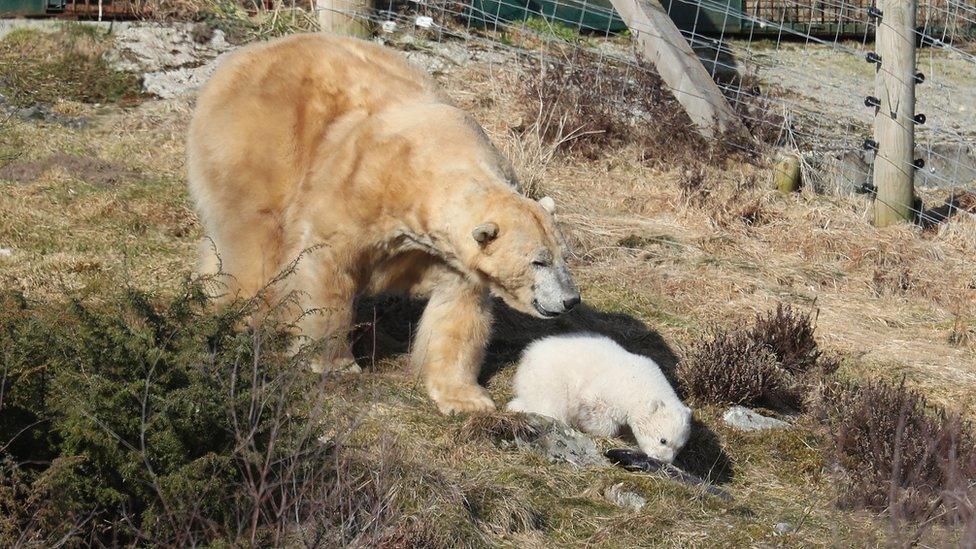
Victoria and her cub
When the door did finally slide open, the cub stuck close to Victoria as she headed out to forage for food left for her.
After a few moments, it seemed to have had enough of the outdoors and headed back in, later calling out to its mother who then ran back to the den area to find it.
But the assembled media were able to see both bears again a short while later, and this time for a few minutes longer.
The cub wandered fairly close to the public viewing area and paused to check out the strange crowd looking back at it.
From Wednesday, the wider public will have its chance to see the wee bear and in a few weeks might even have an opportunity to help name it.
But forget a cheeky bid to call it Beary McBearface - the park staff are busy preparing a select list to choose from.

Some animal welfare organisations, including the Born Free Foundation, strongly oppose the Royal Zoological Society of Scotland's (RZSS) polar bear breeding programme at the park.
The foundation said conditions in the wild cannot be replicated in captivity, and that conservation efforts should be concentrated on helping wild populations.
Mr Richardson said the park's "pioneering" polar bear management programme played a part in polar bear conservation and has described the animals' wild habitat as "melting beneath their feet".
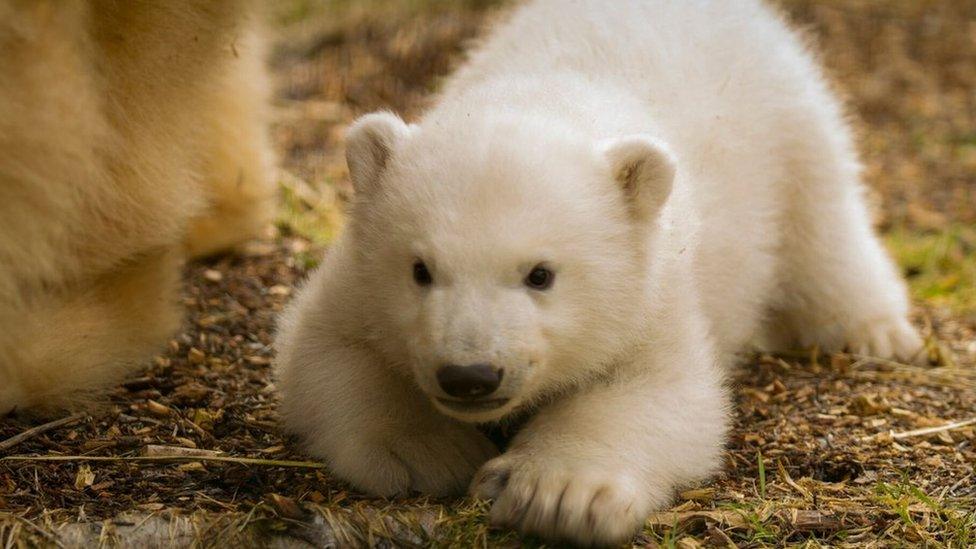
The cub has still to be given a name
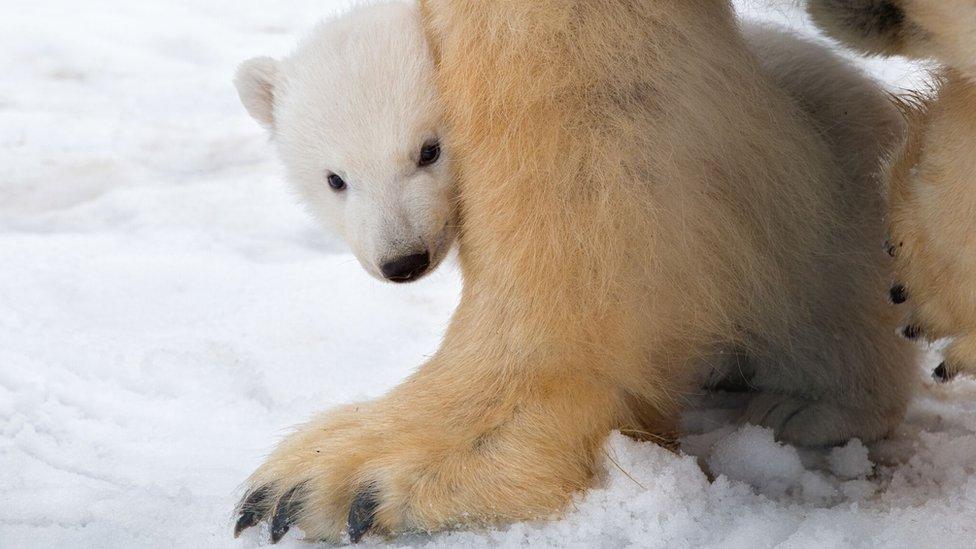
The cub in an image taken by the park's staff recently
He said: "A healthy and robust captive population may one day be needed to augment numbers in the wild, such are the threats to the species from climate change and human pressures.
"The reintroduction of polar bears would be an enormous task but we need to have the option. While our cub will never be in the wild, there is a chance its offspring may be in decades to come."
RZSS chief executive Barbara Smith said: "The birth of the first polar bear in the UK for a quarter of a century is a huge achievement for the Royal Zoological Society of Scotland and the team at our Highland Wildlife Park.
"We are hopeful our cub will help to raise awareness of the dangers to polar bears in the wild. Collectively, we must do all we can to protect this magnificent species."

Bear necessities: A brief guide to polar cubs
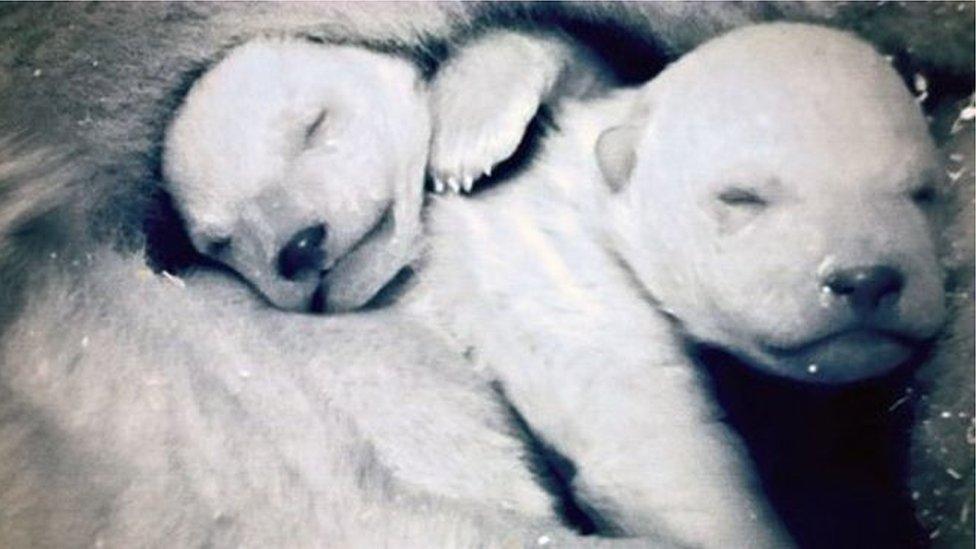
Polar bears mate between March and June
Females normally give birth to one or two cubs in November or December
Newborn polar bear cubs are blind, about 30cm long and weigh little more than a guinea pig. They only open their eyes when they are a month old
Victoria, who was born in 1996 at Rostock Zoo in Germany, previously gave birth at Aalborg Zoo in Denmark in 2008. She arrived at RZSS' Highland Wildlife Park in March 2015
Male bear Arktos arrived at the park in April 2012 from Hanover Zoo in Germany. He was born in 2008 at Vienna Zoo
Arktos shares an enclosure with another male, Walker, whose own time as a cub was the source of a controversy over the BBC's Frozen Planet documentary.
- Published7 March 2018
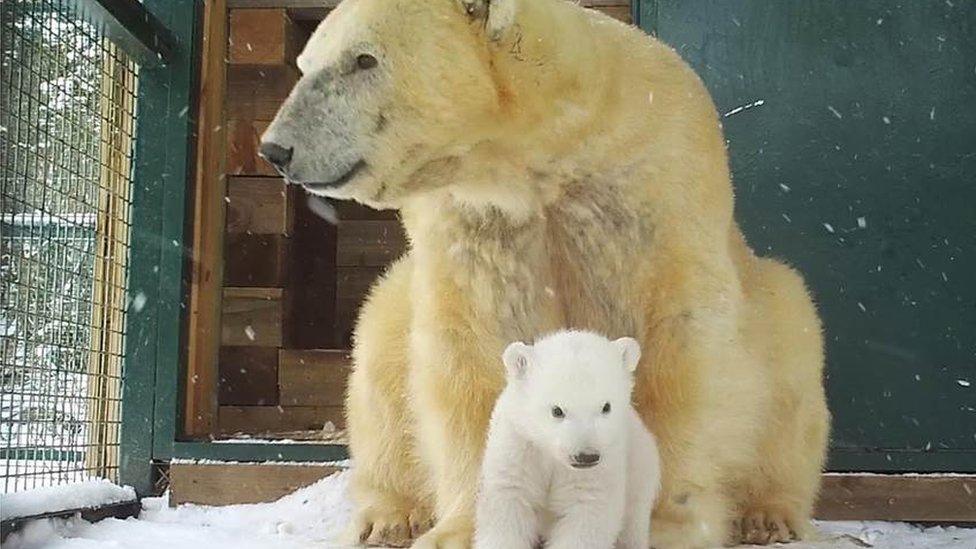
- Published3 January 2018
